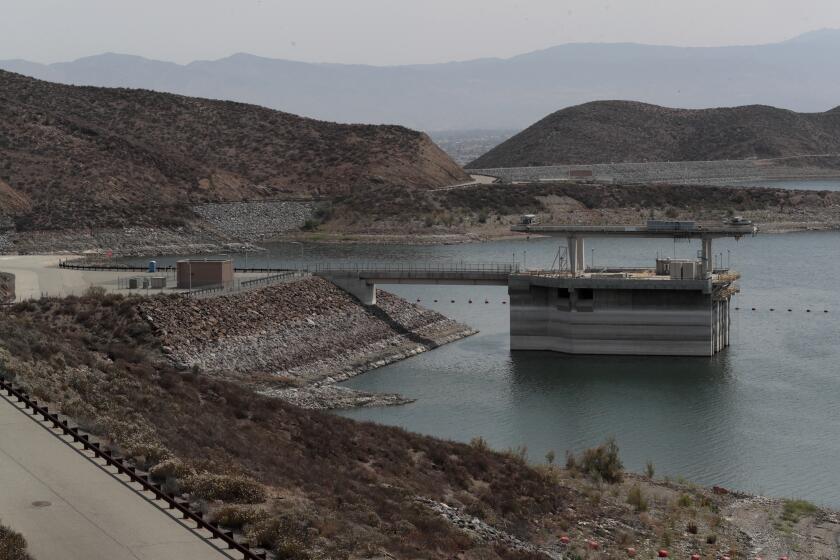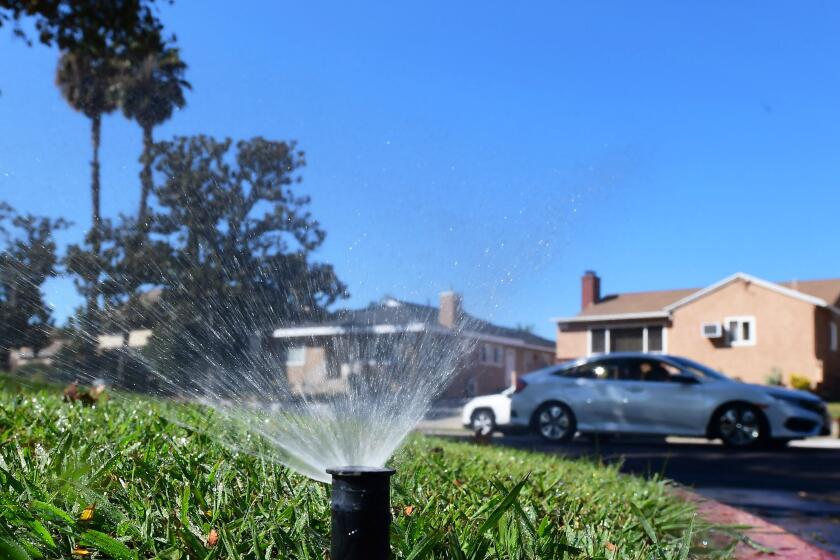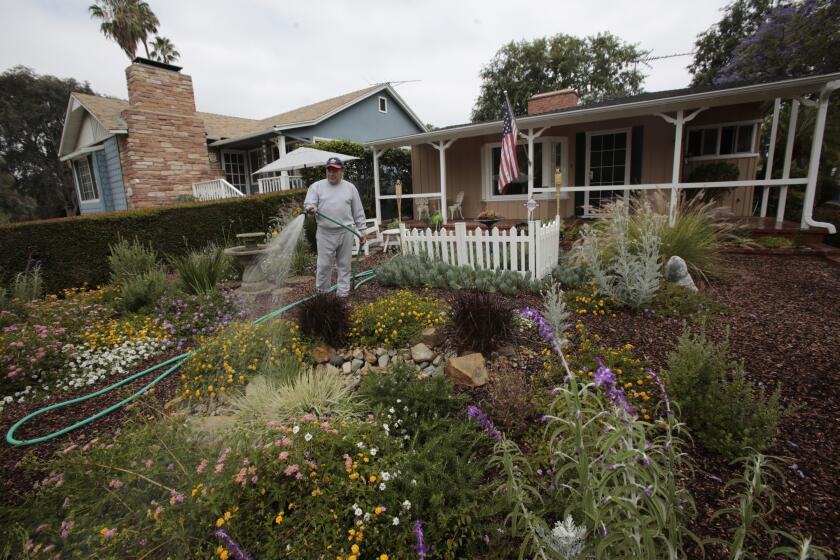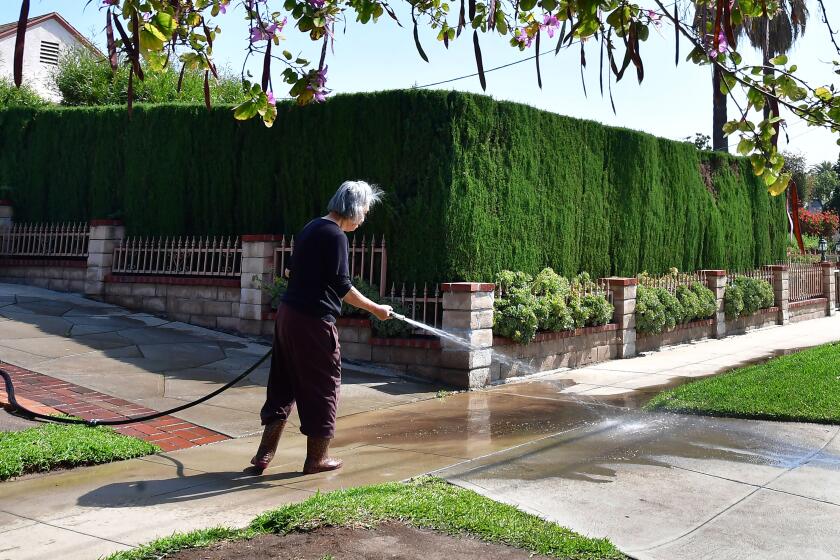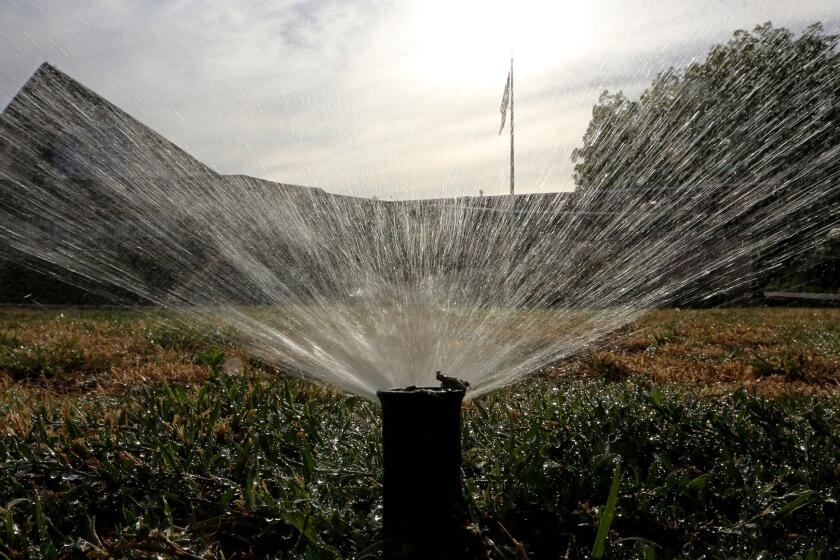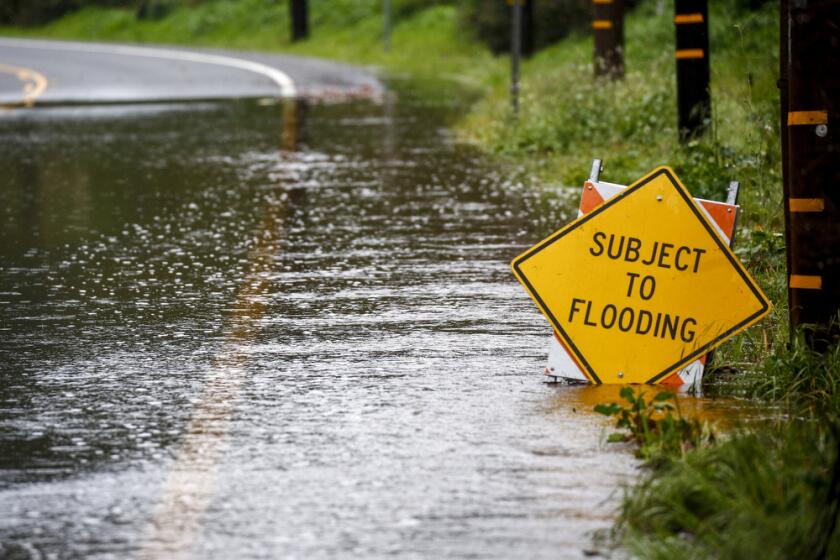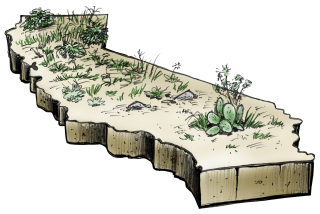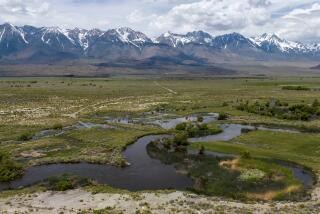Sweeping water restrictions will change life in Southern California: A guide
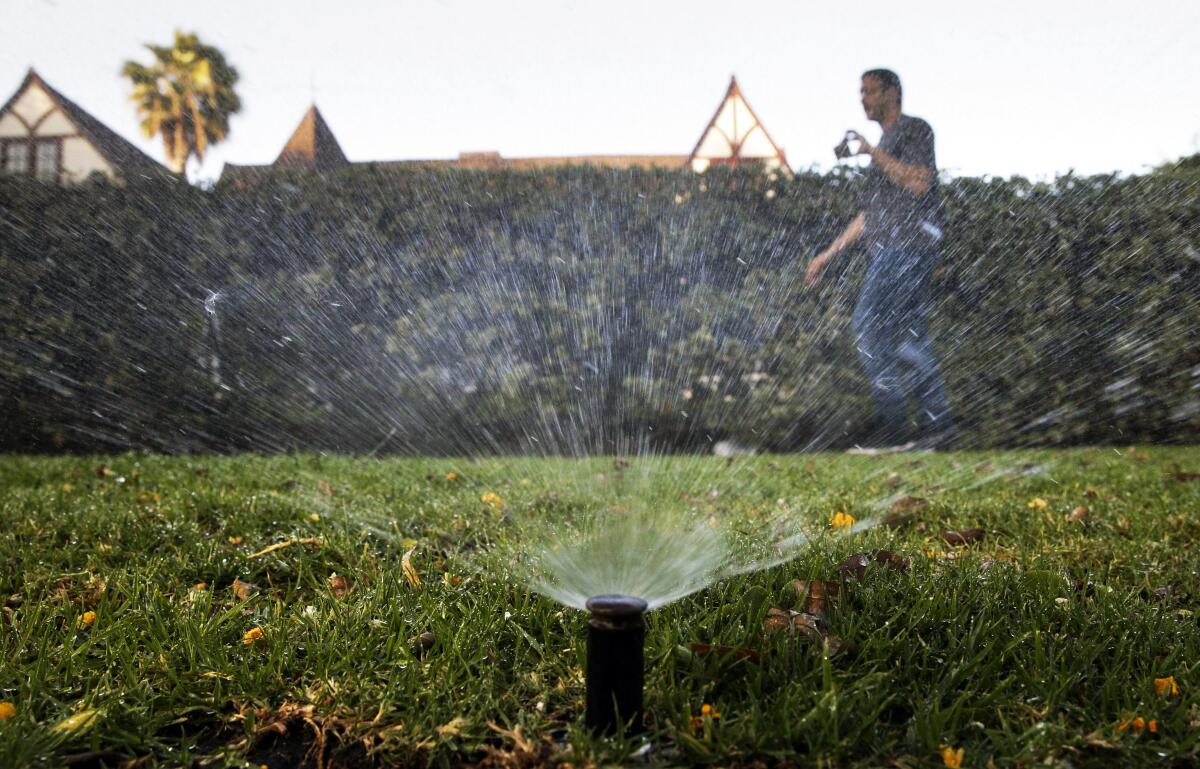
- Share via
Brown lawns. Concerns about dying tree. Big fines.
Drought and climate change are forcing unprecedented water restrictions in parts of Southern California and millions of residents are wondering what happens now.
Here is a guide to what we know.
The plan
On Tuesday, the Metropolitan Water District ordered outdoor water usage be restricted to just one day a week for about 6 million people in parts of Los Angeles, Ventura and San Bernardino counties. The restrictions will take effect June 1 and will apply to areas that depend on water from the drought-ravaged State Water Project.
For the first time ever, Southern California water officials will limit outdoor watering to just once a week in certain areas beginning June 1.
6 million affected
The regulations don’t cover all of Southern California. According to a map presented Tuesday by the MWD, the areas include a large swath of Ventura County as well as the San Fernando Valley, the Westside of Los Angeles, sections of the San Gabriel Valley and southwestern San Bernardino County.
New Southern California drought rules limit outdoor watering to once a week in some areas. Here’s what you need to know.
A worsening drought
At the heart of the crisis is a worsening drought that has gripped California and the American Southwest. The extreme dryness has left Southern California with a dwindling water supply. “These areas rely on extremely limited supplies from Northern California, and there is not enough supply available to meet the normal demands in these areas for the remainder of the year,” said Adel Hagekhalil, the MWD’s general manager.
Southern California doesn’t have enough water to meet demand, so officials have ordered outdoor watering restrictions.
What could be next?
Officials have warned that even more restrictions on water supply in parts of Southern California could come if conditions fail to improve. “If we don’t see cutbacks, or conditions do not get better, the Metropolitan board has given me the authority to ban all watering as soon as Sept. 1,” Hagekhalil said.
The decision to restrict outdoor watering to one day a week for millions of Southern Californians could presage even stricter actions in September.
Brown lawns, protecting trees
With outdoor watering severely limited, officials expect that some lawns will need to go brown. “We cannot afford green lawns,” Hagekhalil said. There are exceptions to the new rules, however, that are meant to protect the region’s trees, which provide valuable shade and help stave off dangerous heat health effects. “The fact is, we don’t want to see our beautiful and ecologically important tree canopy suffer because of these restrictions,” said Deven Upadhyay, the MWD’s chief operating officer. “People should be able to continue to hand-water their trees.”
Large portions of Southern California are being told to water outdoors just one day a week. And a total watering ban could be imposed by fall.
How to conserve?
We’ve all been through this drill so many times, some of the obvious water-saving steps have become almost second nature. Less lawn-watering. Shorter showers. Fewer flushes. But as you go about trimming your water usage at home, experts warn that nips and tucks alone can’t get us out of the multiyear drought we’re in.
Californians are well-acquainted with the need to save water. Here are some practical tips to cut your water use, plus a look at the big picture.
Drought-resistant plants like hummingbird sage and rosemary are the ideal addition to Southern California gardens.
Researchers say California’s cities have big potential to use water more efficiently while taking advantage of stormwater and recycled wastewater.
